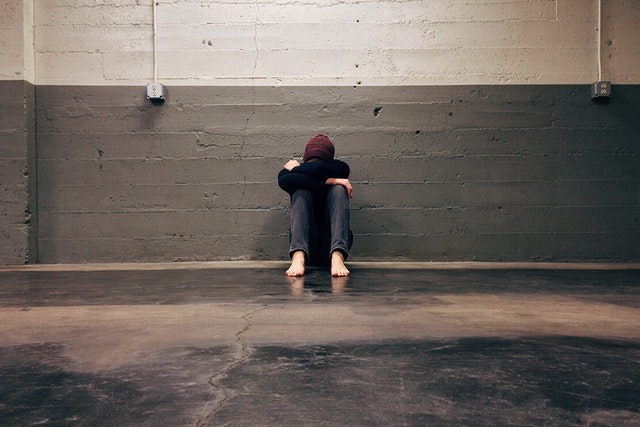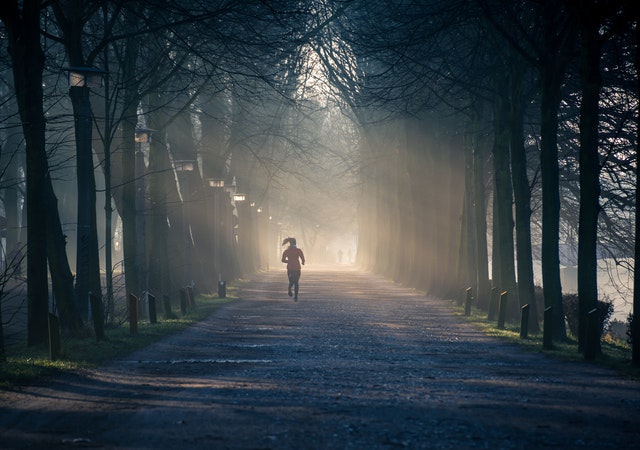- Home
- Articles and blog posts
- Wellbeing advice for PhD students
Articles and blog posts
Wellbeing advice for PhD students

By Keira White
The past 18 months have been a hailstorm (of hell fire) that I can pretty much guarantee not one of us saw hurtling towards us at 110mph. Additionally, if you’re currently in the midst of scaling the academic mountain that is a PhD, it may well have made your Ben Nevis resemble something more akin to a Kilimanjaro. A PhD is at the best of times challenging. If you’ve chosen to take up the gauntlet of achieving that elusive title of Dr so and so, then no doubt you knew it would be tough. From my point of view, what I wildly underestimated was the impact it could and has had on both my physical and mental wellbeing. The last 3 years have consisted of me single-handedly scouring the internet for tips on how to achieve that elusive “balance” that would allow me to peacefully chip away at my thesis in a zen like state whilst effortlessly juggling my full-time job, family and covid restrictions allowing, social life.
I’m not here to tell you that I’ve reached academic Nirvana. I have, however, borrowed and even developed some of my own handy strategies that have helped to make this journey more enjoyable, despite the nagging voice in my head telling me that anything that is worthwhile must be intensely painful.

“The past 18 months have been a hailstorm (of hell fire) that I can pretty much guarantee not one of us saw hurtling towards us at 110mph.”
- EXERCISE– This drum has been beaten to a bloody pulp but my goodness, for me there is no better head clearing reset. If you are expecting your body and mind to sit for prolonged periods at a laptop, furiously downloading articles you swear you’re going to read later (inside joke) then you should also plan some form of physical activity to balance the scales. You don’t need to be an iron man running, triathlon enthusiast, any form of exercise will do. Go for a gentle stroll in nature and smell some green things, take 10 minutes to sit and stretch your entire body which is no doubt coiled tighter than a grad student submitting their first paper to a journal. Whatever form of exercise you enjoy, make time for it, your body and for me more importantly your mind WILL thank you for it.

“If you are expecting your body and mind to sit for prolonged periods at a laptop, furiously downloading articles you swear you’re going to read later (inside joke) then you should also plan some form of physical activity to balance the scales.”
- TAKE A DAY OFF-The very notion of a day off seems like sacrilege to most post grad students but you NEED a solid day that is not consumed by your thesis, you will be a more productive, happier version of yourself when you return to that SPSS spreadsheet or Word document tomorrow. If your mind wanders to your thesis, let it, we often do our best thinking when we give ourselves the space to do so, as long as you don’t let the guilt monster creep in and ruin your well deserved you time.
- OPEN YOUR LAPTOP-This one might seem counterintuitive considering my previous tip but throughout my PhD I have developed something I like to call the laptop ‘ICK’ the day after I’ve afforded myself a well-earned break. I get incredible anxiety about returning to my work and will spend all day using avoidance tactics whilst my cortisol levels hover between high and extremely high. It’s more than procrastination, it’s a genuine fear to even approach my workspace. The way I’ve tackled this is to set myself small tasks aka read one article and see how I feel, or a chapter in that book that’s been gathering dust for the last 4…okay 6 months. I instantly feel like I’ve been eased back in like a tepid bath and often feel able to carry on with other tasks now they don’t seem so daunting.

“I get incredible anxiety about returning to my work and will spend all day using avoidance tactics whilst my cortisol levels hover between high and extremely high”
- ASK YOUR SUPERVISOR-Seems like a no brainer, right? But be honest, how many of you have stressed yourselves senseless over asking your supervisor something you don’t know because of the wealth of experience and published papers they have under their belt? C.S Lewis was wrong, Imposter Syndrome is the thief of joy and we all allow it to batter our delicate psyche’s with its horrid rusty hammer. I have had to repeatedly remind myself that I am learning, I am a student and I am not expected to know everything right now and rather than allow myself to remain in a limbo of I don’t knowsville, I have learnt to ask. So ask, that’s what they’re there for.
The above tips have made this experience so much more enjoyable for me, therein lies the entire point though, you must follow the tips. Don’t read them and think oh lovely I’ll do that and then continue to work yourself into a fraught, tightly wound person who hasn’t received an ounce of natural vitamin D this year. I have been said person and it was a distinctly bad period for mind and body, here’s hoping you can avoid the pitfalls. Finally, you are impressive at the best of times for choosing to follow this path, let alone to do so throughout a global pandemic so go you…you got this.
About the author:
My name is Keira White and I am currently in the final year of my PhD at the University of Portsmouth. I am investigating quality of life experienced by parents and caregivers of children with speech, language and communication needs. I also have a degree in Human Communication Science and have a specific interest in research conducted in the areas of lived experience, wellbeing and the quality of life experienced by patients and their immediate support networks.
